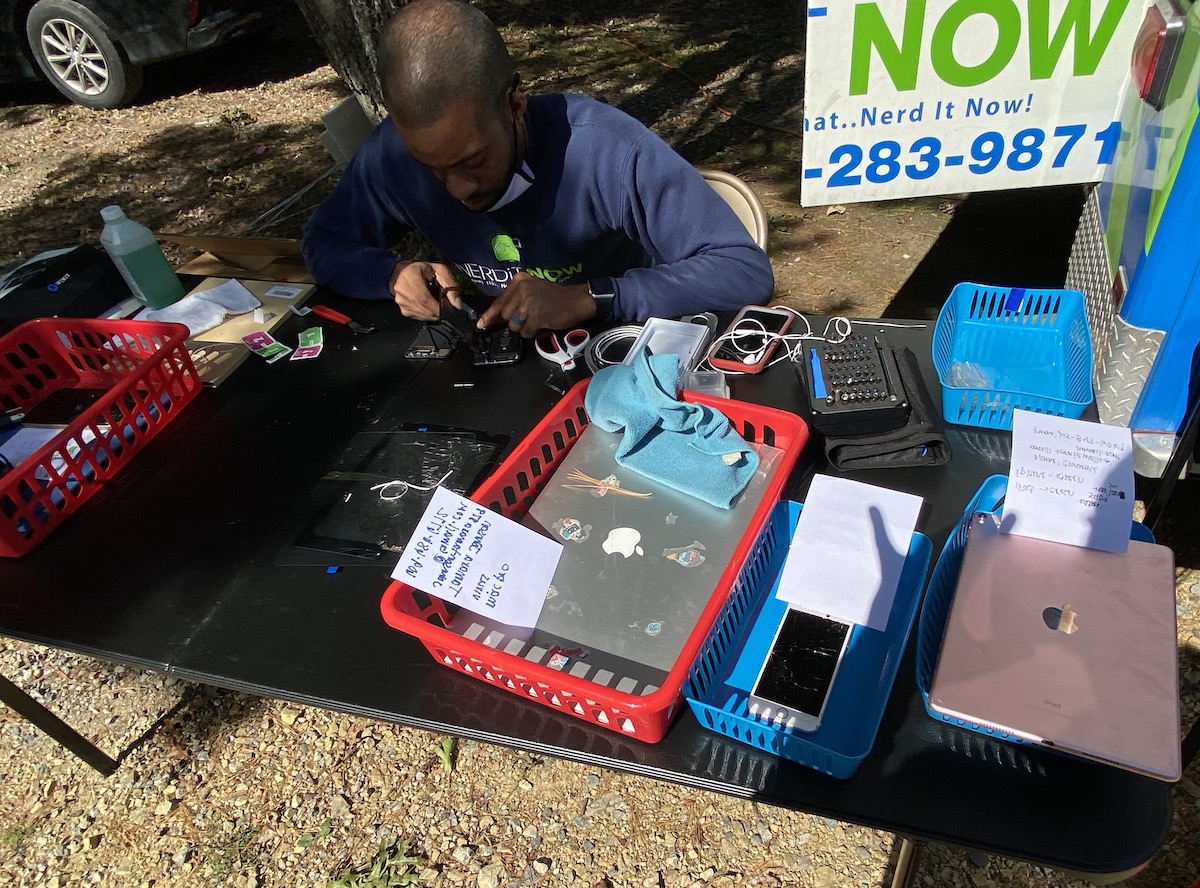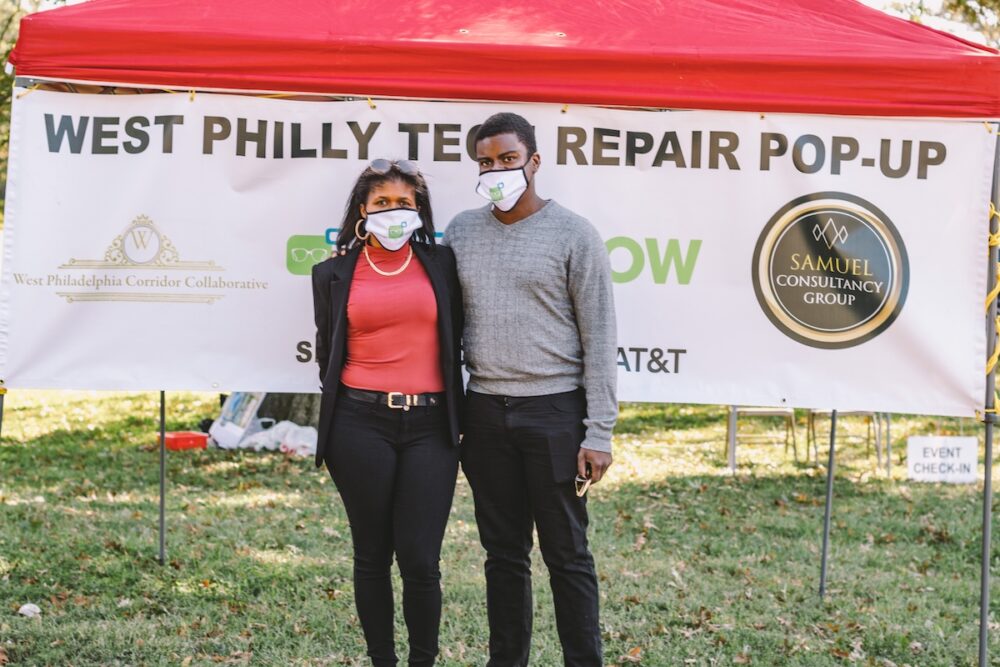Little more than a year ago, the murder of George Floyd by former Minnesota police officer Derek Chauvin sent shockwaves around the world, and along Philadelphia’s business corridors. West Philadelphia, especially 52nd Street, erupted in protests and vandalism against businesses that only temporarily subsided before Walter Wallace Jr. was killed by local police in October 2020.
For West Philadelphia Corridor Collaborative President Jabari Jones, the work in helping restore local business owners’ peace of mind and properties has been a steady climb.
“A lot of our commercial corridors have just started to come back,” he told Technical.ly. “Vaccination rates have started to rise in the city, so people feel comfortable going back to shopping. Businesses feel comfortable about the social climate in the country right now and that helps them expand more.”
According to Jones, the verdict of the Chauvin trial resonated with West Philadelphia business owners in a number of ways.
“A lot of businesses felt like a weight was lifted off their chest as Black people in America [and] as store owners concerned that an innocent verdict could lead to more social unrest,” he said. (One boarded-up property along 52nd Street had been tagged with the words “Chauvin acquitted = riot.”) “They’re also looking forward to which ways government will assist their recovery.”
The June 11 lifting of the mask mandate and 11 p.m. closing time restrictions for bars and restaurants was important for West Philadelphia restaurants and bars to sustain business, Jones said. With more lenient rules across City Line Avenue into Delaware County and in New Jersey, Jones explained that many restaurant and bar owners lost business in recent months because of patrons going outside of the neighborhood to eat and drink.
“The benefit a lot of the Center City [businesses] have is they have natural traffic,” Jones said. “There is a downtown effect with so many businesses in an area. In West Philly, it’s harder to have that kind of traffic. But also when they looked at things like the curfew, people weighed one or two hours at their favorite neighborhood bar or 2 a.m. [elsewhere].”
Jones also expressed optimism when discussing Technology Recycle, an upcoming initiative that was born out of last fall’s Technology Startup Pop-Up event. That event was designed for people to bring in their own technology for repair, but Jones noticed that many were coming in with unfixable technology.

“It was birthed from an experience at a clinic,” he said. “We had somebody with a tablet in the first or second grade that was completely smashed and she was still using the talent to still do classwork. It shouldn’t happen as a city with the resources to provide tech access to communities. I couldn’t imagine someone going the last eight months” with broken tech.
Jones learned from Census Bureau research that up to 15% of households in his district could only access broadband internet through their smartphones. He quickly thought of the issues that could present for people trying to apply for pandemic unemployment assistance, job opportunities and more.
“The purpose of the program is to convince residents, businesses nonprofits and corporations to donate lightly used technology,” he said. “NERDiT NOW will collect tech and salvage or upgrade it. We will redistribute them to families in West Philly without access. We’ve set a very ambitious goal of 3,000 devices we want to collect and recycle to community members.”
Jones hopes that this work can motivate city officials in using relief funds from the Biden Administration in creative, equitable ways in communities throughout the city.
Sadiyah Sabree is the commercial corridor manager at The Enterprise Center and has seen how the West Philadelphia community has responded to a turbulent year. According to Sabree, 36 properties were initially damaged during June 2020’s unrest, and in October, 22 small businesses were impacted, with some businesses being damaged during both occasions.
“A lot of business owners were upset about everything that happened,” she said. “One thing that stood out to me about interacting with small business owners was the resilience that they showed. They closed, reopened and a lot of community members came out to support them. They let the business owners know they were happy to see them reopen.”

During the last year, The Enterprise Center helped small business owners by providing microgrants to those affected by the civil unrest. In situations where businesses needed resources beyond what The Enterprise Center could provide, Sabree said that the organization connected businesses with state grants and other resources.
Helping businesses cross the digital divide was also a significant part of the work that The Enterprise Center did over the last year, Sabree said. With one-on-one consultations, business owners received insight on subjects like technical assistance, ecommerce and digital marketing that were new for them.
The consultations became so effective that Sabree said The Enterprise Center plans to keep them as an ongoing service.
“One of the things we’re working on now is building our one-on-one business consulting,” she said. “We’ve been able to give more than $150,000 in donations to 52nd Street businesses and $75,000 in grants from other sources. I’m grateful we could work with other consultants.”
As West Philly rebuilds and imagines a post-pandemic world, Sabree is believes that better days are ahead for what she considers a vibrant community corridor.
“The experience was definitely difficult but I feel hopeful moving forward,” she said. “There is a level of optimism and businesses feel like they’ve been through the worst.”







